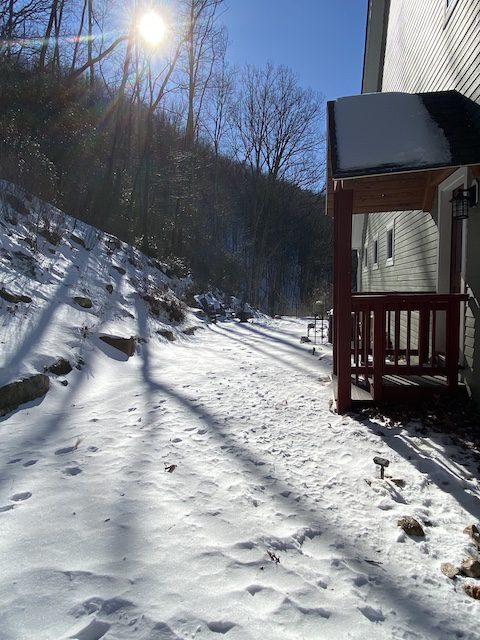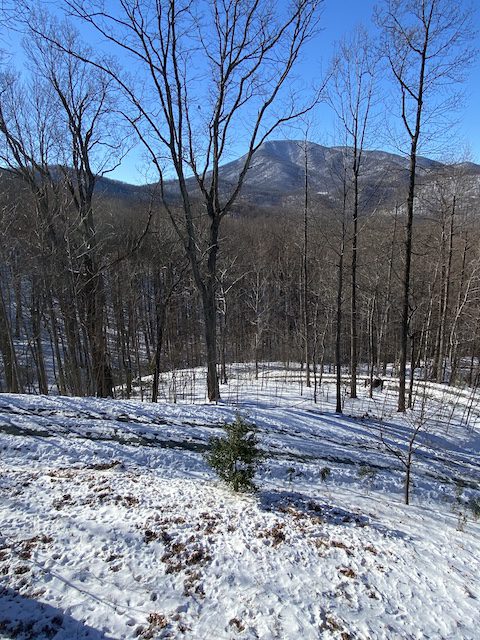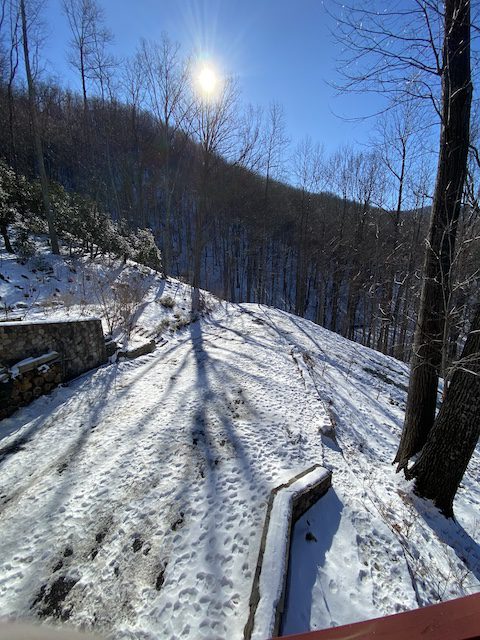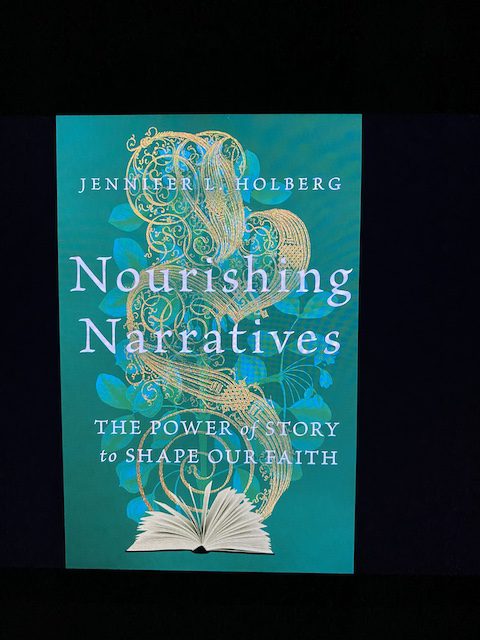


“…many times you’ve heard someone say, particularly after a disappointment or a sudden tragedy or in the middle of a midlife crisis, ‘That’s not what was supposed to happen.’” Jennifer L. Holberg, Nourishing Narratives: The Power of Story to Shape Our Faith
It wasn’t supposed to happen, but there was nothing I could say to our pastor and the members of the music ministry other that this: “Keith and I are homebound until the temperature goes up again. Despite efforts to clear the driveway and road of snow, the cold has made both impassable due to ice. See you tomorrow – online!” Disappointment but no tragedy or crisis. In fact, it was kind of nice to stay home and watch the service online. Both in community—and not.
What we say and what we mean
I love going to church, but meeting and greeting can wear me out and make me less than generous. Both-And. I also enjoy watching over neighbors, though it’s not always easy to listen for as long as they might wish to talk. Or deal with disagreements or love those who are hard to like.
Jennifer Holberg again: “We say we desire community, but if we look closer, we prefer when it’s in our own super-customizable way… It’s always easier not to love our neighbor—our real neighbor, not some theoretical one.”
And others might say the same of me as neighbor, the real, less likeable me.
Essayist have their say

Essayists try to explore the good and bad in their stories and characters, hopefully in a balanced, both-and way. But, as New York Times columnist Frank Bruni said: “…we like our villains without redemption and our heroes without blemish, and we frequently assign those roles in overly strict alignment with our ideology.”
We like to tell as much of the bad part of the story as we can, and there’s plenty of material for that.
Holberg: “So we need to say it: good and bad. I want to make sure, though, to acknowledge the part that was good, that was noble, that was generous.”
What I wanted to say
Back in 2022, I had something I wanted to say to the congregation during the Mission Minute at the end of worship service. So, I prayed to the Spirit then spoke.
“…Western culture divides life into three stages: birth and education; work and family, retirement and death. As we moved into our retirement years, my husband Keith and I borrowed the eastern concept of four life stages—like the four seasons—adding a time for spiritual growth, reflection, and reconnection before retirement and death.
“Third-stage-of-lifers are no longer focused on raising children, earning money to pay the bills, or pursuing success and honors. They have time to learn, reflect, and grow. Time to draw closer to God and heal past wounds. Time to explore, discover, seek meaning, share wisdom, and serve others. Instead of retiring, Keith and I call this process ‘re-missioning.’”
Encouraging the good, noble, generous parts of our both-and selves.
Say, did you notice?
Recently, I was interviewed by my Sage Forum colleague Judy Larson Allen, author of “Reimagining Retirement” on Substack. Having my say and meaning it. The joys and disappointments, the good and bad stories. Both-And. The real me and what I wanted to say: https://www.youtube.com/watch?v=YOhHVRYuHqI
Link up with Five Minute Friday: https://fiveminutefriday.com/2024/01/18/fmf-writing-prompt-link-up-say/



Beautiful view and photos of it–even though it’s icy and treacherous out.
I think I am guilty of “We say we desire community, but if we look closer, we prefer when it’s in our own super-customizable way.”
And now I’m off to listen to your interview.
Thanks for sharing.
(Visiting from #14)
Dear Sandra,
I think we’re all guilty of wanting the world and people to be the way we’d like them to be. Loving our neighbors is such a challenge!
Thank you for watching the interview – I hope you enjoy it!
-C.D.
I particularly like your description of the 3rd+4th stage combo—sounds right to me, and it’s a more positive way to think about this stage.
Thank you for your comment, Ellen. In so many ways, this stage of life been a delightful surprise!
I really relate to the 4 stages of life. There is quite a pivot after being in the structure of the workplace to staying home. Growth is quite a key element.
I agree, the shift from the workplace to the third stage of life is a huge growth opportunity!
Carole, I appreciate your addition of spiritual growth, reflection, and reconnection. They have as vital role to play in our lives.
Thank you, Richard!